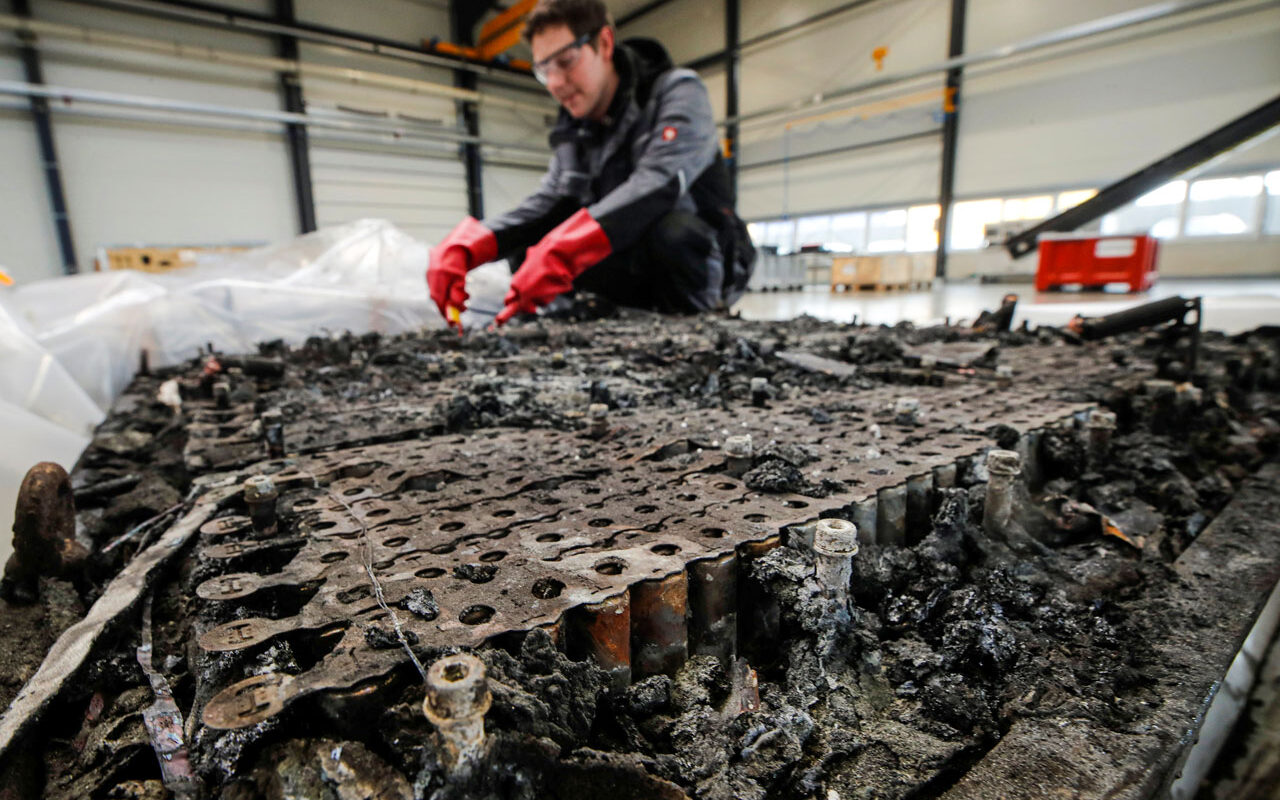Electric vehicle battery recycling involves recovering materials from end-of-life or spent lithium-ion batteries of electric vehicles. Lithium-ion batteries are the primary energy storage medium for electric vehicles due to their high energy density and long lifespan. However, the raw materials used in lithium-ion batteries such as lithium, cobalt, nickel, and manganese are scarce and extracting them involves massive energy usage and emissions. Reusing and recycling the materials from spent lithium-ion batteries helps reduce dependency on virgin raw material extraction. It also lowers energy usage and carbon footprint associated with primary material production.
The global Electric Vehicle Battery Recycling Market is estimated to be valued at US$ 2.4 Bn in 2023 and is expected to exhibit a CAGR of 6.3% over the forecast period 2023 to 2030, as highlighted in a new report published by Coherent Market Insights.
Market key trends
One of the key trends in the electric vehicle battery recycling market is increasing collaboration between automakers and battery recyclers. Most automakers are partnering with battery recycling companies to set up closed loop recycling programs for recovering materials from spent EV batteries. For instance, Nissan has partnered with American Manganese to recycle cathode material from their electric vehicle batteries. BMW Group has collaborated with Duesenfeld to recycle lithium-ion EV batteries at their facility in Germany. Such partnerships ensure a steady supply of materials for battery production and help electric vehicle manufacturers meet sustainability targets. Another trend gaining traction is the use of artificial intelligence and robotics in lithium-ion battery recycling plants. Companies are investing in AI-powered X-ray systems and robotic dismantling equipment to efficiently recover different materials with minimal human intervention. This improves recycling productivity and quality while ensuring workplace safety.
Porter’s Analysis
Threat of new entrants: The high investments required to build electric vehicle battery recycling facilities pose a barrier to entry. Stringent regulations around handling hazardous battery materials also make market entry challenging.
Bargaining power of buyers: Large automobile manufacturers and battery makers have significant bargaining power over recycling firms due to their dominance in the value chain. However, rising EV sales are increasing the bargaining power of recycling companies.
Bargaining power of suppliers: A few major battery manufacturers supply to a fragmented recycling industry. This gives suppliers moderate bargaining power over recycling firms procured batteries.
Threat of new substitutes: No close substitutes currently exist for recycling spent lithium-ion batteries. However, technological advances may lead to new recycling or reuse processes posing a threat over the long-term.
Competitive rivalry: The electric vehicle battery recycling market comprises various small and mid-sized competitors globally. Intense competition over collection volumes and recycling costs pressures margins.
Key Takeaways
The global Electric Vehicle Battery Recycling Market Demand is expected to witness high growth. The global electric vehicle battery recycling market is estimated to be valued at US$ 2.4 Bn in 2023 and is expected to exhibit a CAGR of 6.3% over the forecast period 2023 to 2030.
Asia Pacific is expected to dominate the global market during the forecast period. China’s push for EVs and battery dominance is driving Asia Pacific’s lead in recycling adoption. North America and Europe are also significant markets for EV battery recycling. Stringent regulations around battery waste management and recycling targets in the EU and presence of major automakers are supporting regional growth.
Key players: Key players operating in the electric vehicle battery recycling market include Synutra Inc., Darling Ingredients Inc., Archer Daniels Midland Company, BASF SE, Koninklijke DSM NV. Synutra is one of the largest recyclers of lithium-ion batteries globally while BASF focuses on developing hydrometallurgical recycling processes.
*Note:
1. Source: Coherent Market Insights, Public sources, Desk research
2. We have leveraged AI tools to mine information and compile it



